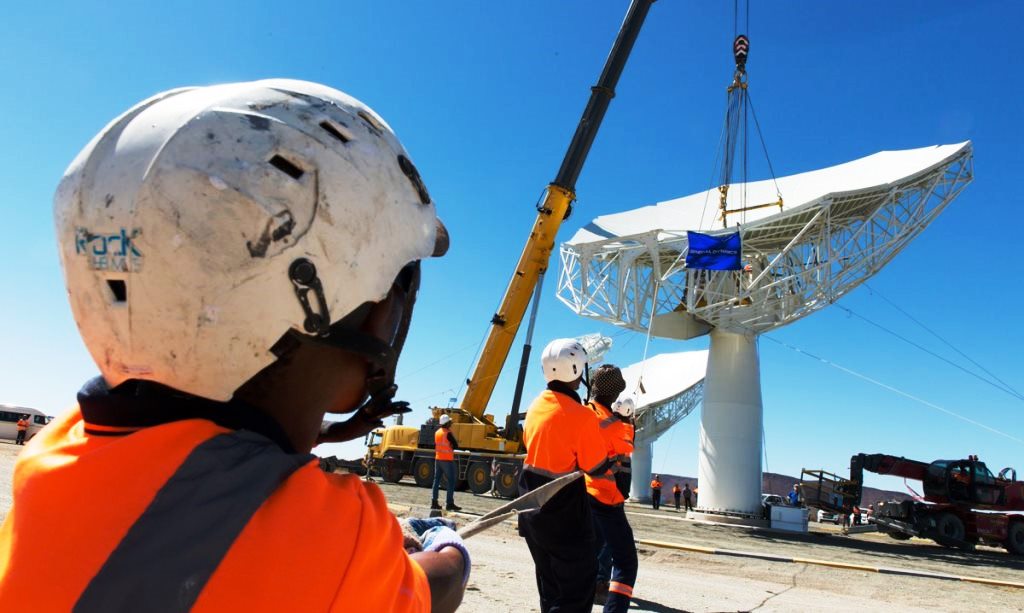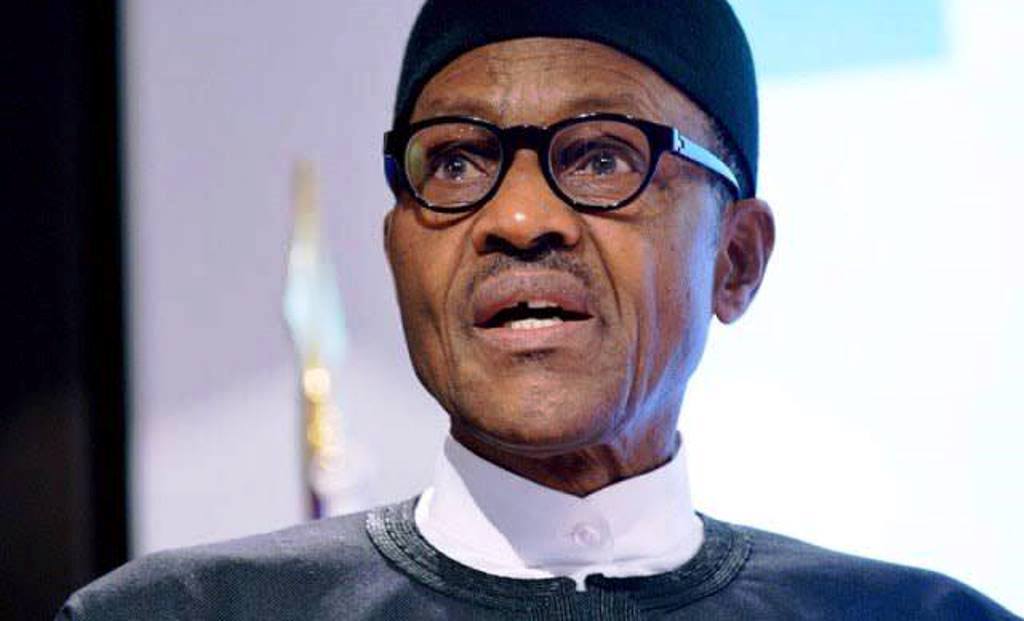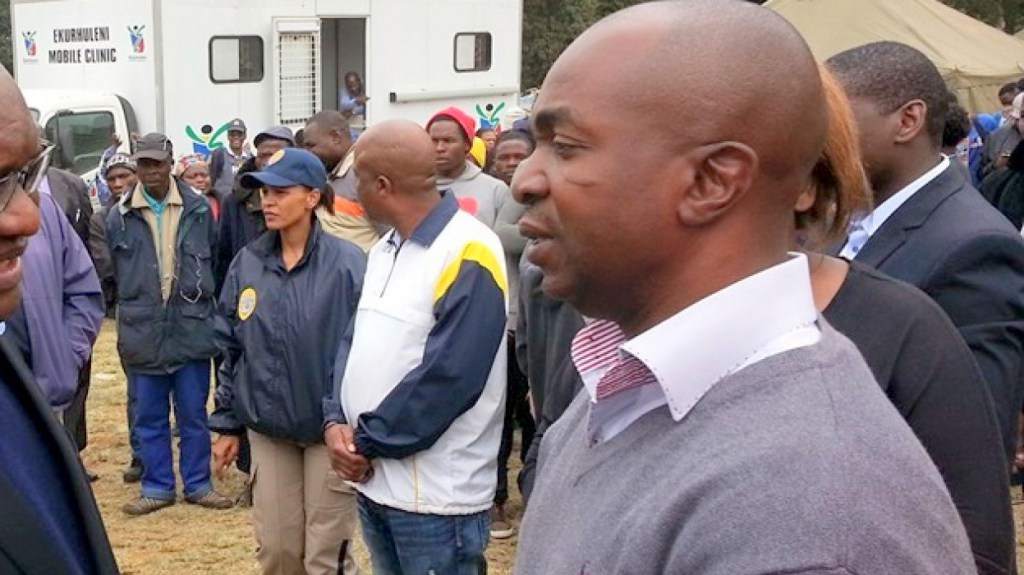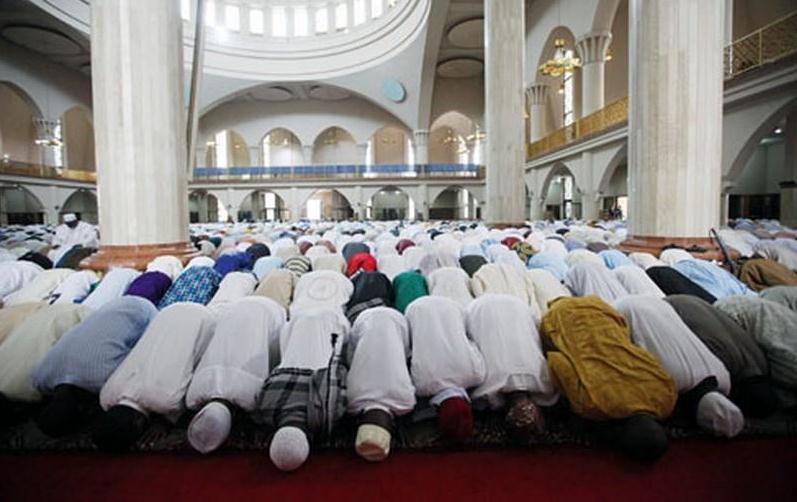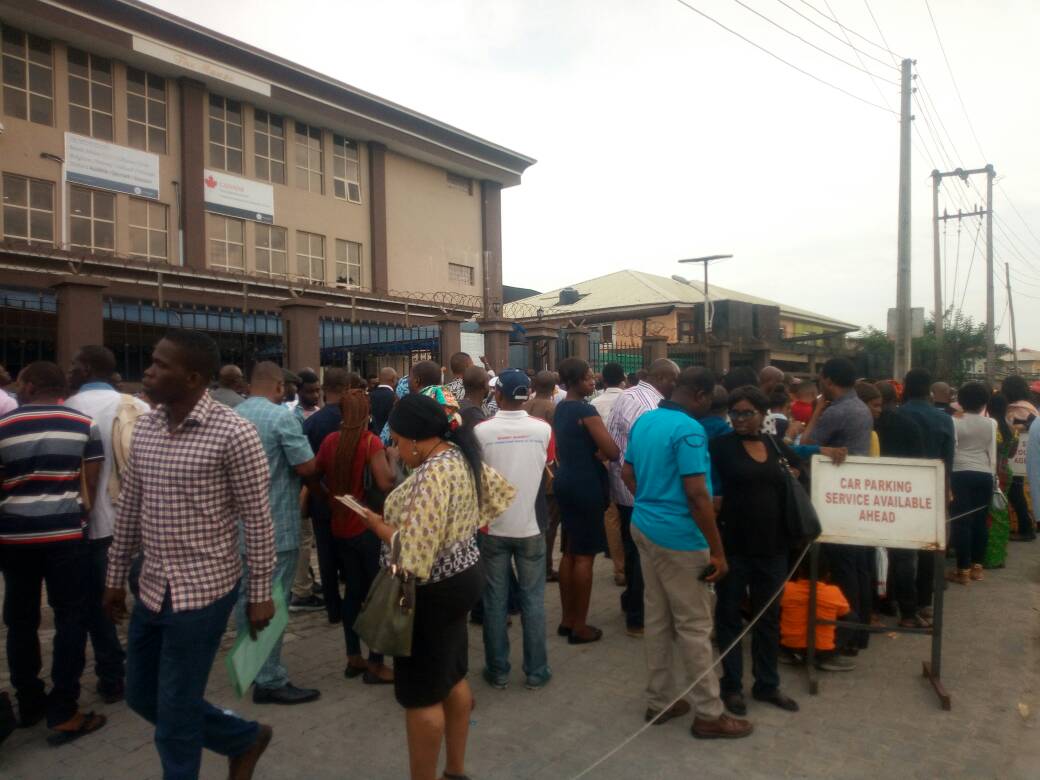By Dr Philip Afaha
In my formative years, I perceived Nelson Mandela as the true meaning of a hero. Folktales were built around him. In schools, rhymes were composed and it was Mandela all the way. I believed the same experience was replicated in all cities and communities in Africa especially towards the close of the last century. Apart from the usual catechism renditions, Mandela was our favourite song outside the church. As a child enthusiast, I had longed to meet Mandela. I couldn’t meet the sage before he died in 2013, but I was among the hordes of people who kissed his statute at the Parliament Square opposite the Westminster Palace in the summer of 2015. My conclusion was that had Mandela lived some 500 years earlier, when the major religions did not yet take roots in Africa, he would have been a god or at least a prophet, worshiped or venerated for who he was and what he stood for. Like all spiritual master, prophets and gurus, Mandela not only fought for freedom but epitomized the best in man, and this is why we are gathered today.
In his epitaph on Joseph Chamberlain, Sir Winston Churchill had succinctly declared that “one mark of a great man is the power of making lasting impressions on the people he meets. Another is to have handled matters during his life that the course of after events is continuously affected by what he did.”
Long after my Westminster impression, I am happy to touch Mandela again today. This was a man who knew where he stood on every question of human freedom in an unusual degree, even at the cost of his comfort, and life. Mandela was a true reflection of his famous 1998 quote that “real leaders must be ready to sacrifice all for the freedom of their people.” Indeed, he sacrificed all.
Legally speaking, a legacy is a token of a will, a bequest or an inheritance handed down from a benefactor.
My topic today is “Mandela: a Legacy of Resilience in the Fight for Freedom”. I will attempt to situate Nelson Mandela, in a compressed format, as a metaphor for freedom. First and foremost, lets recast of how he evolved to become a global icon; and secondly, how we can relive or manage Mandela’s legacy as a freedom fighter.
Now permit me to historicize. In 1652 the Dutch Boers had settled on the cape coast as a stopover during their early trade voyages. It was called Cape of Good Hope because it was not only fertile and served as refreshment stop-over for European sailors and merchants, but held the promise of a flourishing trade station for the mercantile Europe. History has it that the advent of the Europeans in the Cape pushed back the Khoisans, the Bantus, the Hotentots and other aboriginals and by the middle of the 20th Century, the territory was not only subjugated under European rule, the demography of the entire Cape region was distorted and suppression was deployed to effectively cow the ever protesting aboriginals.
The National Party introduced apartheid when it came to power in 1948. The regime which lasted till 1994 when Mandela was elected President of South Africa set in motion a set of legal and social apparatuses to discriminate and deprive the black majority of their freedom and rights. Such instruments included;
- The Group Access Act No. 41 of 1950 which restricted black populations to certain areas.
- The Population Registration Act of 1950 for racial classification and registration.
- The Bantu Education Act of 1955 which excluded African education from the regular educational system.
- The Prohibition Of Mixed Marriage Act of 1949 which criminalized inter racial marriages especially involving a black partner.
- The Immorality Act of 1957 which criminalized consensual sexual relationship between different races.
- The Promotion Of Bantu Self Governance Act of 1959 which provided for self government for Bantustan(black neighbourhoods)
- The Bantu Laws Amendment Act which deprived the Africans of all rights outside their secluded homelands
- The Bantu Homelands Citizen Act of 1969 which gave Africans different and separate citizenship
- The Reservation Of Separate Amenities Act of 1953 which prohibited the use of public buildings and facilities in white areas by Africans
- The Provincial And Municipal Ordinances which ensured total segregation in respect of transportation and social life
Aside these obnoxious regulations, the apartheid system established a pattern of persecution, intimidation and expropriation to cow Africans into submission and subservience.
The resistance and struggle for freedom predate Mandela in South African history. He even admitted to drawing the inspiration from his forebears like Dingane and Bambata, Hintsa and Makana, Squngthi and Dalasile, Moshoeshoe and Sekhukhune, and other nameless heroes he was told as he grew up in the Transkei. By 1912 the ANC was established as a fulcrum for the struggle for the liberation of South Africa. Although its methodology for achieving its aim was peaceful protests and negotiations, it became apparent that the racist government was not going to bulge; hence a new strategy was required to drive home the aspirations of the black South Africans. Even the founders of the ANC had gotten increasingly frustrated and disillusioned by the methods of negotiating with the racist government. According to Luthuili, their past years of struggle “have been spent knocking in vain, patiently, moderately, and modestly at a closed and barred door.” It was such frustrations that compelled the ANC to tinker on its modus-operandi to protest against apartheid legislation by peaceful, but unlawful, demonstrations against certain laws. The new policy culminated in the launching of the defiance campaign and Mandela was placed in charge of the ANC volunteers. (so-called because volunteer to face the penalties of imprisonment and whipping which were prescribed by the legislature for such acts) this new campaign was based on the principles of passive resistance and within a few months of its operations, more than 8,500 activists who defied the racist government were clamped into jail.
In 1960 there was the shooting at Sharpeville, which resulted in the proclamation of a state of emergency and the declaration of the ANC as an unlawful organization. The ANC went underground to continue to press home their demands through protests and subterfuges.
In the same 1960, Mandela was called upon to organise a rally to frustrate the declaration of the republic of South Africa. As secretary of the stay-at-home mass protest, Mandela went into hiding to avoid arrest by the authority. This disruptive demonstration attracted government response as it introduced new and harsher laws, mobilized its armed forces into the townships in a massive show of force designed to intimidate the people. This response also gave rise to the imperative for the establishment of Umkhoto and in 1962, Mandela was thrown into jail.
It was these series of violence and carnage that the decision to form Umkhoto was reached in 1961. According to Mandela during his Rivonia trial, the recourse to violence in South Africa was inevitable, as “it would be unrealistic and wrong for African leaders to continue preaching peace and non-violence at a time when the government met our peaceful demands with force.”
Indeed according to Umkhoto Manifesto;
…the time comes in the life of any nation when there remain only two choices – submit or fight. That time has now come to South Africa. We shall not submit and we have no choice but to hit back by all means in our power in defence of our people, our future, and our freedom.
Mandela took up the leadership of resistance struggle along with his compatriots in the Umkhoto to conduct what he termed ‘properly controlled violence’, so called because all its scheming and activities were to be subjected to the ratification by the ANC. Expectedly, he was severally arrested and charged for sedition and breaching the public peace. The activities of Umkhonto We Sizwe readily comes to mind. In 1949 Mandela joined with other youths to form Umkhonto as a platform for civil disobedience and sabotage against the apartheid government until he was arrested in August 1962.
In his fabled Rivonia trial, Mandela admitted to spearheading the series of sabotages and violence in South Africa, in his terse allocotus, Mandela submitted thus;
I do not, however, deny that I planned sabotage. I did not plan it in a spirit of recklessness, nor because I have any love of violence. I planned it as a result of a calm and sober assessment of the political situation that had arisen after many years of tyranny, exploitation, and oppression of my people by the whites.
In analysing Mandela’s option for resistance, there’s always an argument as to whether his actions constituted terrorism. In his life time he had always insisted that the operations both in the ANC and in the umkhoto did not constitute terrorism. Umkhoto under Mandela’s leadership considered several options of violence which included sabotage, guerrilla warfare, terrorism, and open revolution. Umkhoto adopted what they considered the most logical which was sabotage. They believed that sabotage, unlike terrorism did not involve loss of life, and apart from offering the best hope for future race relations, it would keep bitterness at a minimum, achieve liberation without bloodshed and enhance the reality of a democratic government.
Sabotage, as a strategy was built around attacks on the economic life lines of the country, were to be linked with sabotage on government buildings and other symbols of apartheid. These included destruction of power plants, and interference with rail and telephone communications, would tend to scare away capital from the country, make it more difficult for goods from the industrial areas to reach the seaports on schedule, and would in the long run be a heavy drain on the economic life of the country, thus compelling the voters of the country to reconsider their position.
During his trial, Mandela went on to justify why they chose to defy the law using the tactics of sabotage on two reasons. First, Umkhoto believed that as a result of government policy, violence by the African people had become inevitable, and that unless responsible leadership was given to canalize and control the feelings of our people, there would be outbreaks of terrorism which would produce an intensity of bitterness and hostility between the various races of this country which is not produced even by war. Secondly, they felt that without violence there would be no way open to the African people to succeed in their struggle against the principle of white supremacy. According to his submission, it was when all lawful modes of expressing opposition to this principle had been closed by legislation, and black South Africans were placed in a position in which they had either to accept a permanent state of inferiority, or to defy the government.
The internationalization of the freedom campaigns actually started when Mandela’s Umkhoto-we-siwe, alongside other freedom fighters like Oliver Thambo established ANC offices in exile. Series of successful and unsuccessful sneaky trips were arranged for Mandela to attend conferences and engage with foreign governments and elements against the ban which the racist government had placed on his ilk from foreign trips. One of such trips and perhaps the most impressionable for Mandela was his meeting with Ethiopia’s emperor Haile Selassie. Indeed Mandela relished the sight of “black soldiers commanded by black generals applauded by black leaders who were all guests of a black head of state.”
It is important to note that the fight for freedom for black South Africans came at a high cost for Mandela as a person. Apart from the excruciating effect the struggle had on his family life, he was severally arrested and thrown into jails where he spent most of his life. Between 1952 and 1990, Mandela was a regular inmate of the South African prison and was even prevented from attending the burials of his mother Nosekeni in 1968 and his first son Thembekile in 1969.
NATURE OF FREEDOM
Freedom connotes absence of threats to the basic human rights. One is deemed to be free when none of his fundamental rights and are impaired or curtailed. The Fraser institute17 recently published its 2017 Human Freedom Index by measuring human freedom, as the absence of coercive constraint. The findings in the HFI suggest that freedom plays an important role in human well-being, and they offer opportunities for further research into the complex ways in which freedom influences, and can be influenced by, political regimes, economic development, and the whole range of indicators of human well-being. It also finds a strong relationship between human freedom and democracy.
The index uses 79 distinct indicators of personal and economic freedom in the following areas:
- Rule of Law
- Security and Safety
- Movement
- Religion
- Association, Assembly, and Civil Society
- Expression and Information
- Identity and Relationships
- Size of Government
- Legal System and Property Rights
- Access to Sound Money
- Freedom to Trade Internationally
- Regulation of Credit, Labour, and Business
According to the Report as composed by Vasquez & Porcnik, out of 17 regions, the highest levels of freedom are in Western Europe, Northern Europe, and North America (Canada and the United States). The lowest levels are in the Middle East and North Africa, Eastern Europe (Moldova, Russia, and Ukraine), South Asia, and sub-Saharan Africa. The institute rightly concludes that there is a correlation between the protection of human freedom and overall national development. (It is common knowledge that the principal threat to human freedom the world over is what Ronald Reagan described as “overreaching government”. Indeed he submitted in 1982. “history teaches the dangers of government that overreaches: political control taking precedence over free economic growth, secret police, mindless bureaucracy, all combining to stifle individual excellence and personal freedom.” Across Africa, there appears to be a steady descent into the very abyss of abuse of human freedom, sometimes worst than the type Mandela fought against. Inspite government clean hands claims, official culpability in human freedom abuse is palpable across the continent. From harsh laws to extra judicial convictions to killings to genocide, the entire landscape of Africa currently drenches in blood. Just as in apartheid South Africa, we now read in the papers instances of police and security agents brutalising peaceful protesters and political gatherings. We also hear of government officials demolishing homes and properties of perceived opponents.
It is a sad commentary that after experiencing denials of freedom more than any other human race, especially during slave trade and colonialism, the black man still struggles to appreciate freedom even under self rule. Even democracy has a disturbing variant in Africa; those who rose to power through the ballot are turning to despots, stealing away their people’s commonwealth, and exterminating opposition as they cling to power in perpetuity. In Africa, political power equals to robbing the citizenry of their basic freedom. Rather than altruism, like Mandela`s timeless fight for the freedom of his people, the common tendency among African leaders is to subjugate their people. This attitude to power runs through the entire continent and all current political leaders are caught in this web inspite of Mandela`s caution that “a government which uses force to maintain its rule teaches the oppressed to use force to oppose it.” This ugly perception to power and freedom explains why development continues to elude the continent. A people without basic freedom cannot make progress, of course, prisoners don’t make inventions.
Unlike Mandela, our political leaders` perception of freedom is less than altruistic; there is always a pull in humans to react only when their personal freedom is threatened than to strive for general freedom. Mandela understood that his own personal freedom meant nothing without total liberation of his people, and he was ready to lay his life for this pursuit. According to his biographers, he declined several entreaties by the apartheid government to forgo the liberation struggle for his personal comfort and freedom. The legacy here is that he remained resolute in the right course throughout his life.
It’s instructive to remind South African government and people that behind that epic struggle for the liberation of South Africa were the goodwill and resources of other African countries who though had won their independence and freedoms, had to join forces to beat back apartheid inSouthh Africa. One of those countries is Nigeria. Although the sage was rightly disappointed in Nigeria because of how the countries leaders continue to plunder and mismanaged her fortunes. Mandela continues to weep in his grave whenever his compatriots, for whatever reasons, resort to xenophobic attacks against the same people who paid so many prices for their freedom.
Today Mandela is celebrated as a global icon in major cities of the world, and expectedly, in here in Abuja. The government of South Africa can do more by teaching its people the history of their struggles and the meaning of African brotherhood. They should remind them of the sage`s last admonition in his Long Walk To Freedom that “with freedom comes responsibilities” before they destroy the Mandela legacy.
According to Prof Michael Adikwu, the Vice Chancellor of the Univerisity of Abuja; “no story of any man is complete no matter who he is, until such a man is interested in the affairs of other men on earth.” Indeed, Nelson Mandela is a complete story.
Happy birthday Madiba !!
*Dr Philip Afaha Is Head Of Dept., History & Diplomatic Studies, University Of Abuja.
